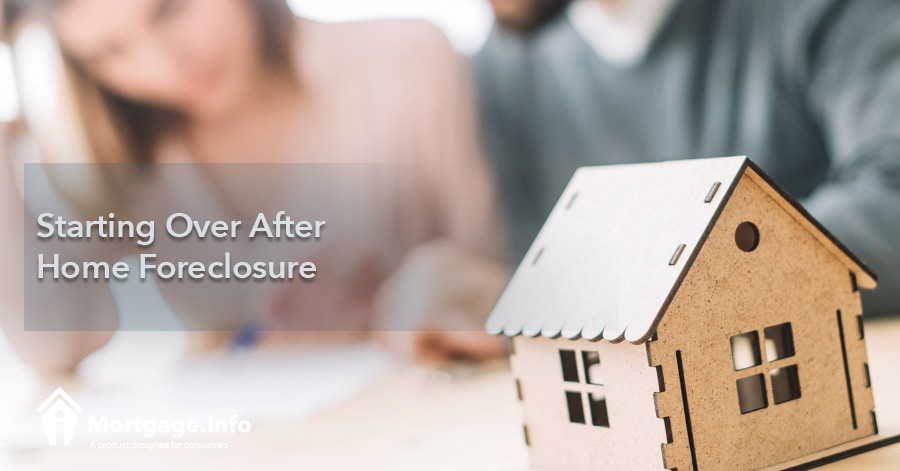
Have you lost a home in foreclosure and assume your options for homeownership are over? Don’t lose heart. It’s not as bad as you think and if you take the right steps, you may get out of the mess sooner than you think.
Compare Offers from Several Mortgage Lenders.
Keep reading to learn the steps you should take in order to recover from a foreclosure.
Build Your Credit up Again
First, you need to build your credit up again. Chances are that your credit score took quite a hit after losing your home. If you were affected financially in other areas as well, your score may have dropped even further.
In order to build your credit back up, you’ll have to assess the situation.
- If you still have credit cards pay down the balances as much as you can. Don’t just make the minimum monthly payments. Instead, pay as much as you can towards the balance to get the credit card paid off in full. The lower utilization rate and timely payments will help your credit score.
- If you have any other loans, make sure you pay them on time.
- Don’t close any old accounts. You want your average credit age to be as high as possible. The ‘younger’ that your credit age is, the lower your credit score becomes.
- If you don’t have any credit cards or other loans, consider applying for a secured credit card. You put down a security deposit that equals your credit line. You can then use the card, but make sure that you pay the balance off in full to help your credit score increase.
- Once you establish credit with the secured credit card, you can apply for standard credit cards using the same method. Just be careful not to put yourself in debt or use too much credit at one time.
Click to See the Latest Mortgage Rates.
Save Money
If you’ve found somewhere to live that you can rent, hopefully, the rent is less than your mortgage payment used to be. This could allow you to save money towards a new home. Most loan programs make you wait at least two years before you can apply for a mortgage after foreclosure. Use this time to put money away for a down payment. The more money you have saved, the higher your chances of getting approved for a mortgage become.
As a general rule, for an FHA loan, you’ll need a 3.5% down payment and for a conventional loan, you’ll need a 5% down payment. This doesn’t mean that you should only save the minimum amount, though. If you can make a larger down payment, lenders see that as a compensating factor. This could improve your chances of getting approved for the mortgage even sooner.
Spend Wisely
Just because you have a two-year period that you must wait until you can apply for another mortgage, it’s not a period for you to spend money. Lenders are going to look back over the last two years to see how you recovered from the foreclosure.
If your credit report is filled with overextended credit lines, multiple inquiries, and numerous loans, they aren’t going to think that you learned your lesson after losing your home. Instead, use the lesson to move forward and spend wisely.
- Only charge what you can pay off in full each month
- Don’t apply for new loans excessively
- Don’t take on too many installment loans
Lenders want to see that you were able to overcome the issues that you faced. If you apply for a mortgage and are still in over your head in debt, they will think that you are still a high risk. If instead, you apply for the loan with little to no debt and a solid history of paying your bills on time, you’ll have a better chance of getting the approval that you need.
